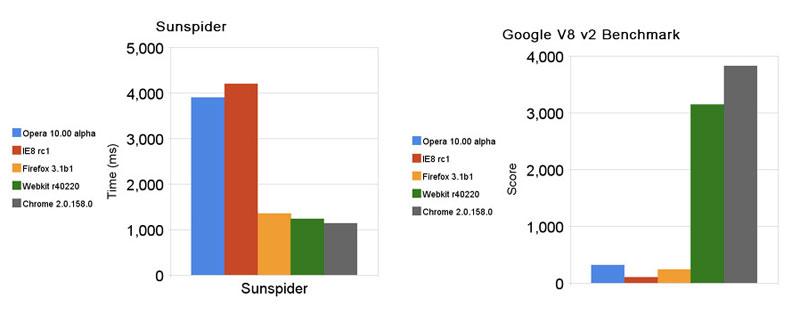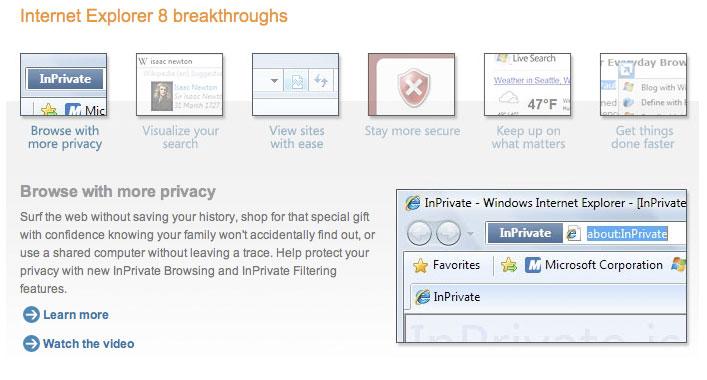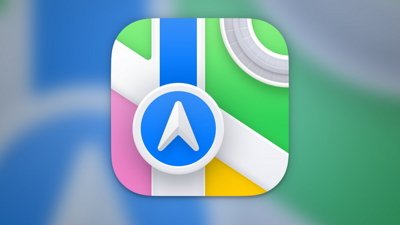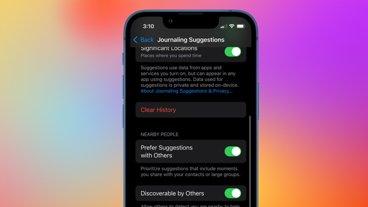IE8's JavaScript performance lags well behind Safari, Chrome
Microsoft's overnight posting of the final Internet Explorer 8 pre-release build prompted ZDNet Australia to run it through some benchmark tests against its counterparts.
On the Sunspider JavaScript performance test, despite all the performance improvements Microsoft says it's making, IE8 finished last by roughly 3,000ms. Â It was narrowly bested by Opera 10 alpha, while bunched at the top of the performance ranks and separated by slight margins were Google Chrome 2.0.158.0, WebKit r40220, and Firefox 3.1 beta 1. Â WebKit serves as the foundation of Apple's Safari browser.
ZDNet was not surprised to find that Google's browser came in first on Google's own V8 JavaScript Benchmark, while WebKit finished a close second. Â Opera and Firefox trailed well behind in third and fourth, while Internet Explorer was a distant last.
Sunspider test results (shorter bars are better) and Google V8 v2 test results (longer bars are better).
Although its appearance is mostly unchanged from IE7, IE8 has received some new features, including a private browsing mode Microsoft calls InPrivate, joining long-present similar features in Safari, Opera, and Chrome.
The new Internet Explorer also has automatic crash recovery, domain highlighting for spotting phishers, and a safety filter. Â New plug-ins called Accelerators are designed to speed access to information. Â Users can choose from about 80 currently available for download, while pre-installed Accelerators include Windows Live functions like blogging, e-mail, mapping, and translating.
The browser, according to Microsoft, is virtually feature-complete, and users should expect little change between the release candidate and the upcoming final version.
"The ecosystem should expect the final candidate to behave like the release candidate," said IE General Manager Dean Hachamovitch.
IE8 is compatible with Windows XP SP2 and Vista, but not the Windows 7 beta. Â Microsoft says it will build a version of IE8 into the final release of Windows 7 with "unique features and functionality" exclusive to the company's new operating system that will eventually succeed Vista.
 Zach Spear
Zach Spear












 Chip Loder
Chip Loder
 Andrew Orr
Andrew Orr
 Christine McKee
Christine McKee
 Marko Zivkovic
Marko Zivkovic

 Mike Wuerthele
Mike Wuerthele
 William Gallagher
William Gallagher








